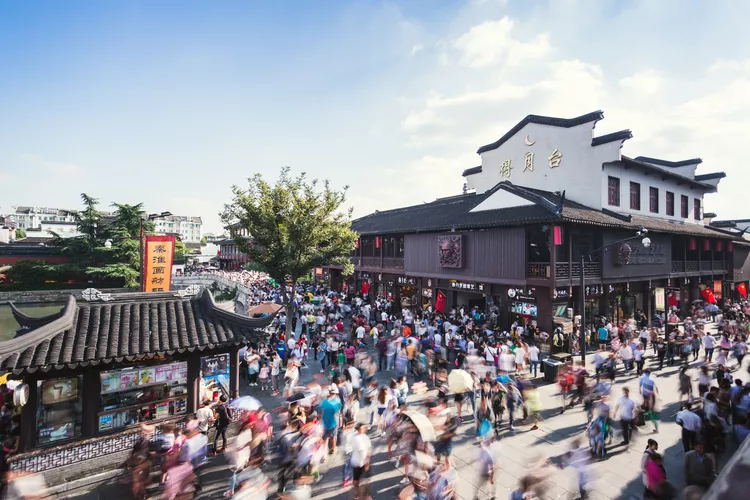1. Introduction to Safety in China
China is, for the most part, a pretty safe place in which to travel — you don’t have to worry about accidentally venturing into the wrong part of town. That said, you do need to have your wits about you to ensure that you travel safely and prudently. There are a few customs that foreign guests to China sometimes find unsavory. Being aware of these will help you prepare for likely events without coloring your trip unsatisfactorily. Read on to learn the different types of hassles and nuisances travelers may experience in China.
2. Pickpockets/Petty Thievery
As mentioned, it’s crucial to remain vigilant in any crowded situation. Pickpocketing occurs frequently and is not localized to foreigners. Here’s how to travel smartly:
- Don’t keep all your money in the same place.
- Don’t carry too much cash with you.
- Don’t carry your passport with you. (Though if you do experience a passport emergency, here’s what to do.)
- Keep your bag zipped and hold on to it tightly in crowded subways or places.
- Avoid placing your wallet in an open back pocket.
- Refrain from keeping valuables in a backpack.
3. Touts and Vendors

Around large markets, many touts (aka aggressive street vendors) try to attract your attention to look at their merchandise. A simple wave and friendly bu yao (pronounced “boo yow”), which means “I don’t want/need it,” is usually enough to fend them off.
However, if you appear at all interested, they may persist in trying to engage you. Start by being firm yet friendly. If they continue, a stronger bu yao may suffice. If the situation becomes more intense, you may need to resort to ni zuo kai (pronounced “nee zoh kye”), which means “Go away.”
If you feel uncomfortable or harassed, report it to the local authorities; there is usually a police or security presence in larger markets designed to control such behavior.
4. Queuing or Lining Up

One of the more frustrating experiences in China is the experience of queuing – or more accurately, the lack of it. Pushing, shoving, and cutting in line without so much as a glance is common. Here’s how to cope:
- Breathe deeply.
- Stand your ground.
- Indicate you were there first if someone cuts in.
- Cut back in front of the individual who cut ahead of you.
- Get close — don’t maintain what appears to be a normal distance. Get in there and fight for your turn.
- Don’t take it personally.
5. Spitting and Burping
Many Chinese individuals may spit and burp publicly without a second thought. In this culture, these actions are not deemed gross or rude. However, due to concerns about disease transmission, public campaigns to reduce spitting have been somewhat effective in larger cities. Nonetheless, don’t be surprised if you hear someone hawking a loogie (just remember to take off your shoes before entering your hotel room).
Moreover, burping is perceived as a sign of contentment and serves as a compliment to the cook. It’s best to embrace these cultural differences, which certainly add to the experience!
6. Traveling with Children

Chinese people have a fondness for children, making it mostly enjoyable to travel with your little ones. However, there’s a chance that many people you meet will wish to hold, tickle, or fawn over your baby or toddler. While this can be delightful, if you’re in a rush or your child isn’t receptive to strangers, it can become tiresome. Here are some strategies to manage these interactions:
- Indicate your baby is sleeping and keep the stroller moving.
- Smile, shake your head, and wave your hand no.
- Intercept any offered candy and express gratitude.
- Continue moving along.
7. Begging
Despite China’s rapid economic growth, a segment of the population still faces extreme poverty, and some individuals resort to begging in busy city streets. Common targets include large markets, upscale restaurants, and ATMs near major hotels.
Therefore, it’s crucial to exercise caution. Deciding whether to give or not is a personal choice; however, if you do choose to assist someone, especially a woman with a child, be prepared for the possibility of attracting many others seeking help. It’s essential to maintain the safety of your belongings. In many instances, it’s advisable to walk away swiftly rather than engage. Witnessing poverty can be immensely difficult, especially when faced with the eyes of a begging child, but consider supporting local charities that help with education or women’s initiatives instead.
8. Crossing the Street

Be aware that pedestrians hold the lowest rank on the transportation hierarchy in China. Despite the inviting green pedestrian signal, it’s vital to stay alert – always look both ways before crossing and maintain vigilance. Cars may turn abruptly in front of you, and buses tend not to slow down for bicycle and pedestrian traffic. In many instances, locals jaywalk or integrate into moving traffic without so much as a glance. Consequently, caution is paramount when navigating traffic in China.
Moreover, it’s worth noting the environmental concerns: China is considered one of the leading polluters globally. Its rapid reliance on coal and resources to sustain economic growth has significant implications for air quality in urban areas. It’s wise to acknowledge this before traveling but don’t let it deter you from exploring. Outside of major cities, you may find the skies surprisingly clear (just visit the Great Wall from Beijing on a less-than-ideal day, and you’ll understand). Be sure to bring any necessary medication for asthma or allergies and consider a facemask to assist in preserving your lung health.





